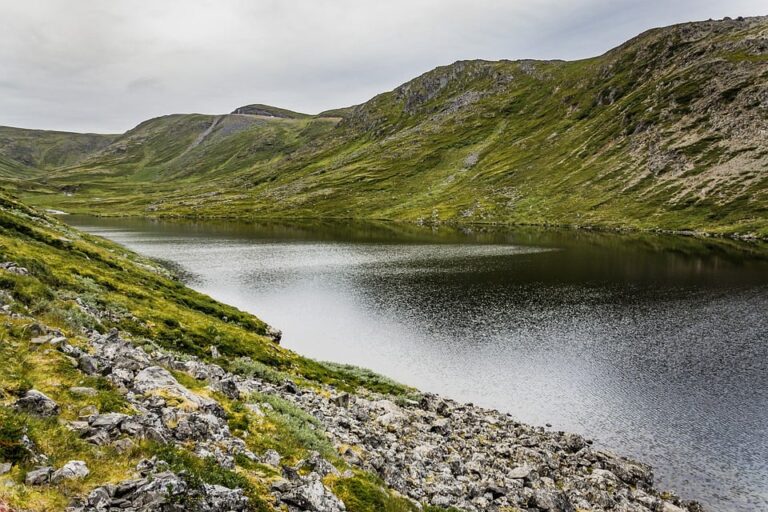Securing Our Future: Innovative Strategies for Sustainable Water Management
In an era defined by climate change, population growth, and increasing urbanization, the sustainable management of water resources has emerged as one of the most pressing challenges of our time. Water is an essential resource for life, economic development, and ecosystems. Despite its abundance in many regions, the mismanagement and wastage of water are leading to acute shortages and exacerbating the issues posed by a changing climate. To secure a sustainable future, it is imperative to adopt innovative strategies for water management that balance human needs, environmental preservation, and economic viability.
Advanced Water Recycling and Reuse
Recycling wastewater is a critical strategy to address water scarcity. Advanced treatment technologies, such as membrane bioreactors and reverse osmosis, allow for the purification of wastewater to the point where it can be safely reused for agricultural, industrial, and even potable purposes.
Cities like Singapore and Windhoek, Namibia, have successfully implemented large-scale water recycling programs that not only conserve water but also create a resilient supply chain independent of climate variability. In Singapore, the NEWater initiative has achieved international acclaim, with recycled water meeting up to 40% of the nation’s water demand. Similarly, Windhoek’s Goreangab Water Reclamation Plant has supplied potable water since 1968, demonstrating the long-term viability of advanced water recycling.
Smart Water Grids
Smart water grids leverage Internet of Things (IoT) sensors, machine learning algorithms, and real-time data analytics to optimize water distribution networks. These systems can detect leaks, predict equipment failures, and dynamically manage pressure to reduce wastage.
For example, the city of Barcelona has installed over 800,000 smart water meters that significantly reduce non-revenue water flow and ensure efficient resource utilization. Smart water grids also empower consumers with detailed usage reports, encouraging water-saving behaviors. The implementation of such systems can cut down on extensive water losses, which account for up to 30% of urban water supply in some areas (World Bank, 2020).
Sustainable Agricultural Practices
Agriculture accounts for about 70% of global freshwater withdrawals, making it a critical sector for implementing sustainable practices. Techniques like drip irrigation and rainwater harvesting can dramatically improve water use efficiency. Additionally, employing precision agriculture tools—such as soil moisture sensors, drones, and satellite imagery—allows farmers to optimize water use based on real-time data.
Studies reveal that drip irrigation can reduce water use by up to 60% while increasing crop yield by 90% (International Water Management Institute, 2019). Crop diversification and the cultivation of drought-resistant plant varieties further enhance resilience to changing rainfall patterns, as demonstrated by India’s National Initiative on Climate Resilient Agriculture (NICRA) which promotes adaptive strategies to safeguard water resources in drought-prone regions.
Managed Aquifer Recharge (MAR)
Managed Aquifer Recharge involves the intentional replenishment of groundwater supplies using surface water or reclaimed water. This process helps mitigate the effects of over-extraction and provides a buffer against periods of drought.
Techniques such as infiltration basins, injection wells, and riverbank filtration can be tailored to local geological and hydrological conditions. Projects like California’s Water Bank serve as a model, demonstrating how MAR can sustain groundwater levels and support agricultural and urban water needs. Between 2000 and 2015, groundwater levels in areas with MAR projects were noticed to decline at a much slower rate, showcasing its effectiveness (California Department of Water Resources, 2017).
Desalination Technology
While desalination is often viewed as an energy-intensive and costly solution, recent advancements have significantly improved its feasibility. Innovative approaches such as solar-powered desalination plants and energy-efficient reverse osmosis membranes are making it more sustainable.
Countries like Israel and Saudi Arabia are at the forefront of developing and implementing cutting-edge desalination technologies, turning seawater into a reliable source of fresh water. Israel’s Sorek Desalination Plant, one of the largest in the world, has reduced the production cost of desalinated water to $0.58 per cubic meter, making it a viable option for addressing water scarcity (World Bank, 2019).
Community-Based Water Management
Grassroots initiatives and community participation are vital for the success of water management strategies. Empowering local populations to take an active role in the stewardship of water resources fosters a sense of ownership and responsibility.
Community-based approaches, such as the participatory management of watersheds and the promotion of water-saving techniques at the household level, can lead to sustainable outcomes. Programs like the Waterkeeper Alliance, which engage local communities in protecting rivers and watersheds, exemplify the power of collective action. In regions like above-average rainfall Australia, community-led efforts in Murray-Darling Basin have led to the restoration of over-extracted river systems to sustainable levels (CSIRO, 2020).
Policy and Regulatory Frameworks
Effective water management requires robust policy and regulatory frameworks. Governments must implement policies that encourage conservation, equitable distribution, and the protection of water resources. Economic instruments, such as water pricing and incentives for water-efficient technologies, can drive behavioral change and technological adoption.
International cooperation and treaties are also essential for managing transboundary water resources and addressing global water security challenges. The European Union’s Water Framework Directive is a prime example, offering a regulatory template that integrates water resource management with environmental protection objectives, driving member states to adopt sustainable water policies (European Commission, 2020).
Conclusion
Securing our future through sustainable water management is not just a technical challenge; it is a societal imperative that requires coordinated action at all levels—from individuals and communities to governments and international bodies. By embracing innovative strategies such as water recycling, smart grids, sustainable agriculture, managed aquifer recharge, advanced desalination, community engagement, and robust policy frameworks, we can safeguard our precious water resources for future generations. The journey towards sustainable water management is complex and multifaceted, but it is a journey we must undertake with urgency and determination.
For further reading, visit the following sources:
